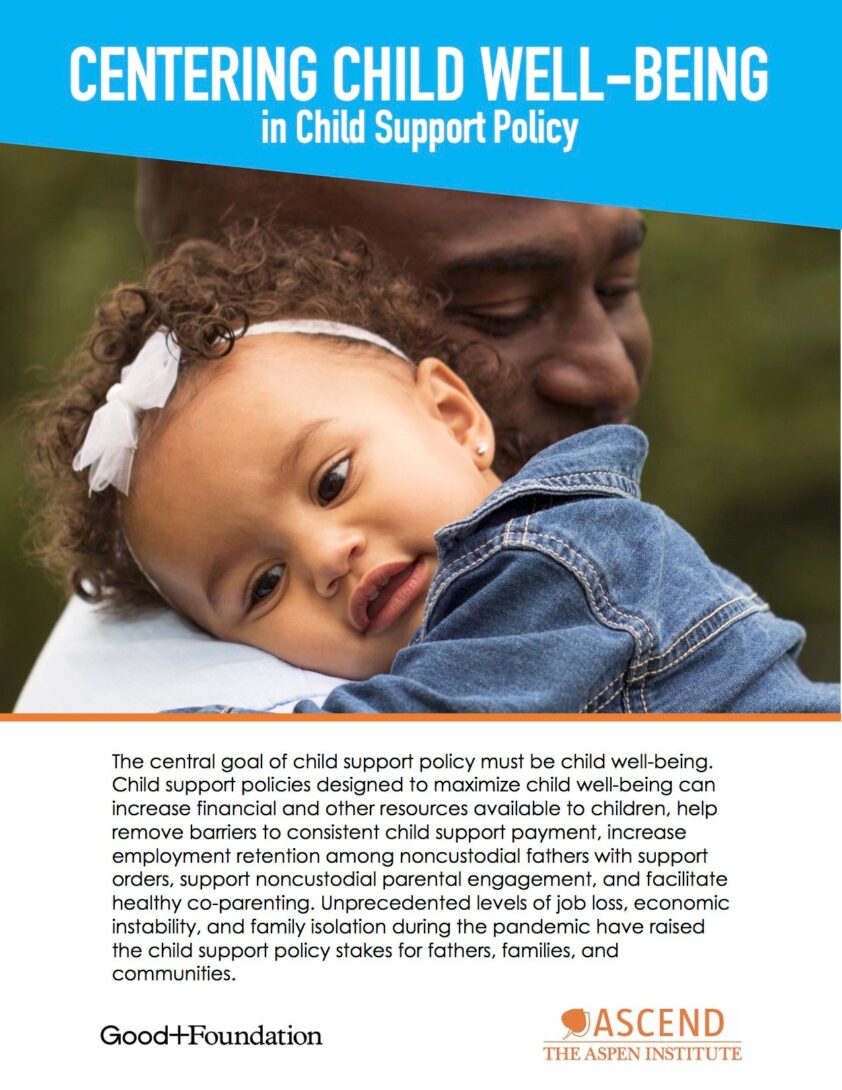Record levels of job loss, economic instability, and family isolation during the pandemic have raised the child support policy stakes for fathers, families, and communities. Through careful and rigorous research, we know that there is a better way to approach child support policy to build strong families and communities.
The Centering Child Well-Being in Child Support Policy toolkit, developed in partnership with Good+ Foundation, features new analysis of state child support director survey data. We found that many states are moving to adopt more pragmatic and family-centered child support policies, including the following innovations:
- Ensure Families Receive All Child Support Payments
Putting child support dollars in families’ hands results in more income for families and helps them cover essentials like children’s food, clothes, and school supplies. States can direct that money to families at home, rather than to the federal government. Family pass-through and distribution policies incentivize noncustodial fathers to pay through the formal child support program and can increase federal incentive payments by improving child support program performance.
- Implement Sensible Debt Reduction Strategies
Reducing state-owed debt can increase employment and child support payments, reduce time spent on futile collection efforts, and increase federal performance incentive payments. Almost all states have policies that allow noncustodial fathers to seek a reduction of state-owed debt, either on a case-by-case basis or as part of a debt reduction program. Debt reduction programs work hand-in-hand with prevention and early intervention strategies, including setting realistic support orders, intervening early in cases where fathers are falling behind on payments, and providing needed services through community partnerships. - Set Realistic and Accurate Child Support Orders
- Provide Employment and Income Supports When Noncustodial Parents Have Barriers to Payment
- Provide Family Stabilization Services
- Improve Equal Access to Justice for All Parents
Explore the most robust state pass-through and disregard policies that benefit families receiving TANF cash assistance and how debt reduction programs can generate payment in cases with a history of nonpayment in the first two fact sheets of this toolkit.

